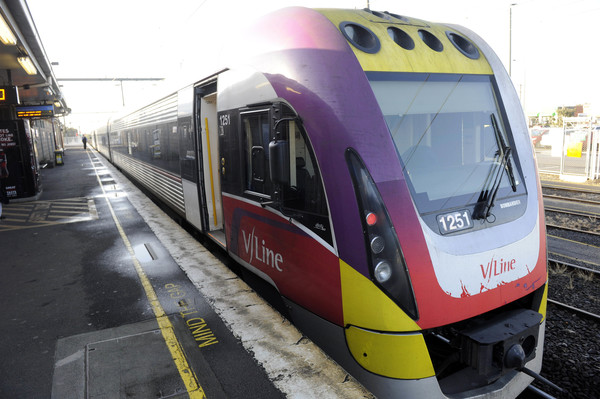By ALANA MITCHELSON
The State Government should reverse a decision to “abandon its promise” of free wi-fi for Geelong and Ballarat trains, according to a Liberal MP.
The Government announced last week that wi-fi would not be provided from a remaining $18 million of its regional connectivity budget.
Western Victoria MP Simon Ramsay said the former coalition government had committed $40 million in the 2014/2015 budget to fix V/Line mobile phone black spots and deliver free wi-fi by the end of this year.
“An estimated 40 per cent of the distance travelled between regional city centres and Melbourne is not currently covered by a reliable mobile reception, causing frustrating drop-outs for regional rail travellers,“ Mr Ramsay said.
“The Andrews Government has betrayed regional Victoria by axing the funding for free wi-fi on V/Line trains.
“The Andrews Government needs to explain to regional Victorian rail passengers where the $40 million is now being redirected.”
Small Business, Innovation and Trade Minister Philip Dalidakis said mobile black spots had priority over internet services.
“With more than 4.1 million passenger trips each year, the Geelong-Melbourne rail line is one of Victoria’s busiest and the Andrews Labor Government will deliver an end to mobile calls dropping out,” Mr Dalidakis said.
“People will be able to both make and take phone calls as well as use their existing data plans, ensuring that you will not miss a phone call again from a loved one telling you they are home or an email from a business customer making a purchase.
“Wi-fi services would only benefit 75 per cent of commuters, so the decision was made to re-prioritise and fix the mobile black spots on Victoria’s five busiest regional rail corridors – Geelong, Bendigo, Ballarat, Seymour and Traralgon.”
Mr Dalidakis said the project would provide “big improvements to mobile services for all regional rail commuters” along the routes.
“It’s also expected to boost productivity for business commuters, contributing an estimated $20 million per annum in additional revenue for the economy.”
Construction of the mobile towers is set to begin in mid-2016 with improvements by late next year.









